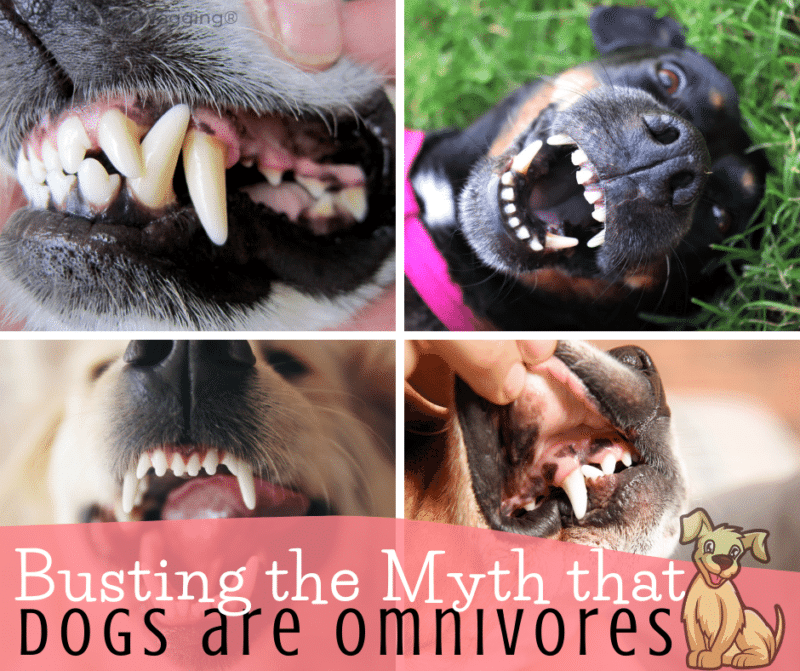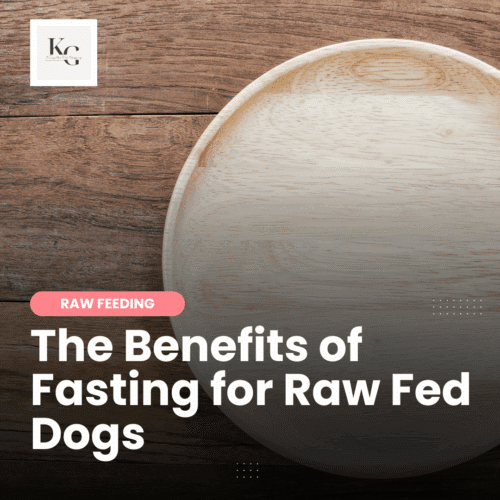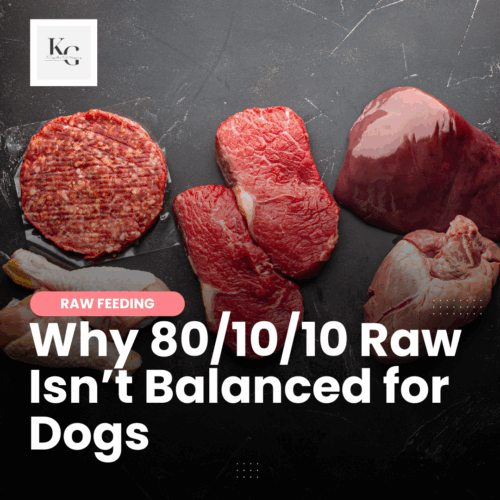Keep the Tail Wagging is supported by pet parents. I occasionally earn a commission (at no additional cost to you) when you click through an affiliate link to one of my favorite products. Thank you for your support. Read More
The pet food industry has been peddling the myth that dogs are omnivores for decades because it allows them to produce high-carbohydrate and plant-based diets at low costs. For proof of this, search online, and you'll find that most websites that claim that dogs are omnivores are profiting off the sale of high-carb or plant-based diets. Of course, not all dry dog food is created equal, and not all dog owners have the time or knowledge to formulate a nutritious diet for their dogs. But there is a middle ground, which I'd like to cover in this article.
What are Facultative Carnivores?
Dogs are considered facultative carnivores, a term used to describe animals that can consume plant material but primarily subside on animal-based protein. Facultative carnivores have a digestive system well-suited for processing animal-based proteins and fats but can adapt to include carbohydrates in their diet if required. Despite being domesticated and often fed commercial diets that contain carbohydrates, dogs, similar to their wild counterparts, do not have a biological need for carbohydrates in the same way as omnivores or herbivores.
Due to their evolutionary history as carnivorous hunters and scavengers, dogs have a digestive system optimized for breaking down and extracting nutrients from animal-based foods (muscle meat, organ meat, and bones). Their short digestive tract and acidic stomach environment are designed to efficiently digest and absorb proteins and fats from meat sources. Unlike herbivores, dogs lack the specialized enzymes necessary to break down the cell walls of plant material, making them less efficient at digesting carbohydrates. Therefore, while dogs can derive energy from carbohydrates, they do not require them for optimal health.
Responses to the Myth that Dogs are Omnivores
With social media giving every ya-hoo (including myself) a platform to spit facts and misinformation, we often encounter people who defend the myth that dogs are omnivores. The following facts prevent me from being dissuaded.
The Domestication of Dogs
Interestingly, dogs have evolved to develop the ability to produce amylase, an enzyme responsible for breaking down starches and carbohydrates, in their pancreas, which is then released into the small intestines. This adaptation allows dogs to utilize carbohydrates better than their wild ancestors. The increased production of amylase in domestic dogs is believed to be a result of their association with humans and the dietary changes that came with domestication, which included a more varied diet that may have included some plant-based foods.
Dog's Possess the Teeth of a Carnivore
Dogs have sharp, pointed teeth at the front of their mouth called incisors, which are used for grasping and pulling food. These are followed by pointed canine teeth designed for tearing and gripping meat. Behind the canines, dogs have premolars and molars with flat surfaces used for shearing and crushing bones and tougher tissue. These are the teeth of a carnivore.
In contrast, omnivores like humans have a mix of different types of teeth that are adapted to a more varied diet consisting of both plant and animal-based foods. Omnivores have incisors for cutting and biting into food, canines for tearing meat, premolars for crushing and grinding plant material, and molars for further grinding and breaking down food. The molars in omnivores often have flatter surfaces compared to carnivores, which aids in grinding plant material.
The differences in teeth between carnivores and omnivores reveal important insights into their respective diets. Carnivores' sharp, pointed teeth are designed to efficiently process animal meat, while the lack of specialized grinding surfaces reflects their limited need to break down plant material. In contrast, omnivores have a more versatile dentition that allows them to effectively consume a broader range of foods, including both plant-based and animal-based sources.
Dogs Possess the Jaw of a Carnivore
Carnivores have powerful and robust jaws with strong muscles that provide the force needed to capture and kill prey. Their jaw muscles are well-developed and optimized for a quick and powerful bite, allowing them to pierce through tough flesh and crush bones. Additionally, carnivores have a specialized jaw joint that allows for a wide range of motion and a strong bite force. A dog's jaw strength is essential for hunting, tearing meat, and consuming animal proteins effectively.
Dogs Possess the Digestive System of a Carnivore
Dogs have the digestive system of a carnivore. They have a large stomach (it's very elastic) designed to hold large quantities of meat, bone, organs, and fur, with a short gut that allows food to pass through quickly, which is why when we feed our dogs carrots or green beans, we see remnants in their stool. While raw feeders understand the importance of pureeing vegetables to break the cellular wall (and make nutrients more bioavailable), fermented vegetables are superior; they present as pre-digested and don't need time to sit and ferment in the gut.
While dogs create amylase in the pancreas, the digestive enzyme needed to break down plant matter, they don't produce enough to manage a diet high in vegetable matter, which leads to our dogs absorbing fewer plant-based nutrients. I include dehydrated and pureed vegetables in my dog food recipes, primarily for fiber and antioxidants. My dogs gain the bulk of nutrients from muscle meat, organ meat, and bones.
While dogs are facultative carnivores with a primary preference for animal-based foods, they have evolved to adapt to a more diverse diet that may include some carbohydrates. However, it is important to recognize that dogs do not have a strict biological requirement for carbohydrates and can thrive on a diet that prioritizes high-quality animal proteins and fats. Understanding the evolutionary adaptations that have shaped dogs' dietary needs can help pet owners make informed decisions when selecting and formulating diets for their canine companions.






